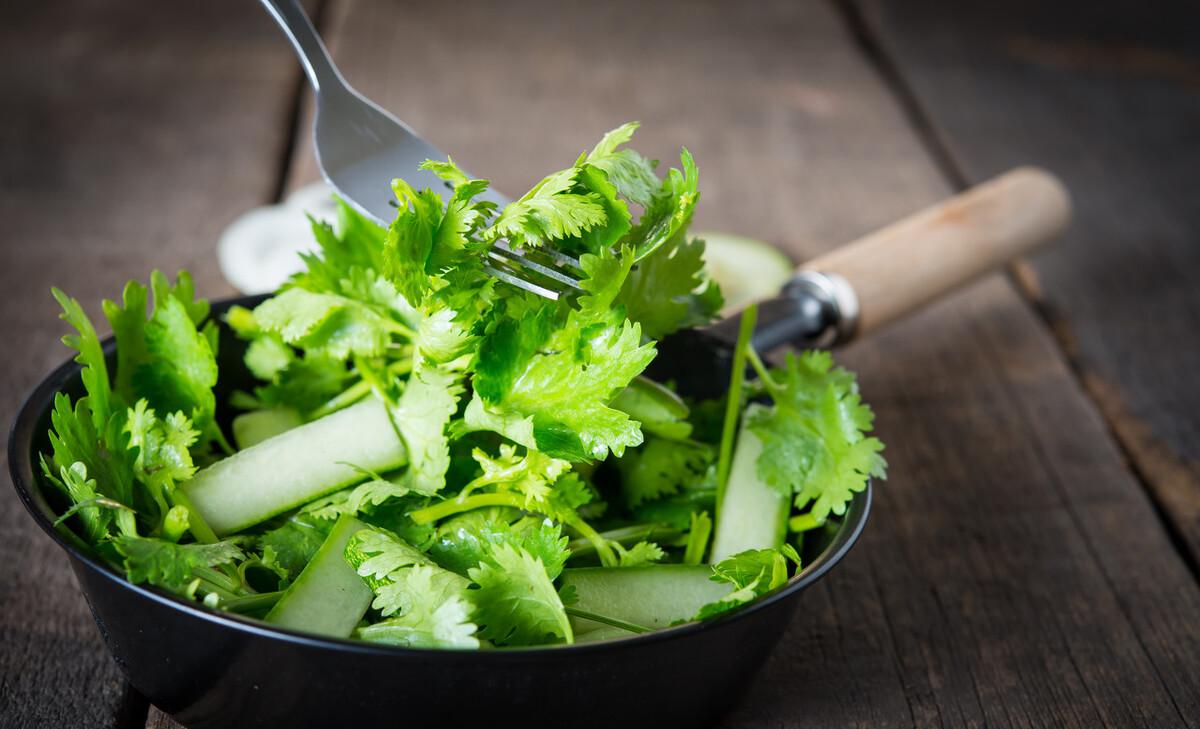Coriander, some people like some people love, as a hot pot side dish, mixed with the seasoning of the dish is good, for people who like it, the stimulating aroma and taste of coriander are loved.
But for nasty people, smelling coriander is not shy, and some people even say that there are only two kinds of people in the world, those who eat coriander and those who don't eat coriander.
For the "aroma" of coriander, there are simply many opinions, some people say that this is the smell of bed bugs, and it is disgusting to smell. Some people say that this is a clear fragrance, and it is salivating when it smells. So what is the "incense" of coriander?
<h1 class="pgc-h-arrow-right" data-track="8" what is the "aroma" of coriander >? </h1>
The unique taste of coriander mainly comes from a variety of aldehyde substances, such as phenylacetaldehyde, undecane, decanal, cyclodane, undecaldehyde, tridecanal, tetradecaldehyde, etc., these ingredients are mixed together to form a unique smell of coriander. People who like coriander think it's grassy, while people who don't like coriander think it smells like bed bugs.

This difference is genetically determined.
People who hate coriander have an olfactory receptor gene on their bodies, which makes people very sensitive to coriander substances, and receives all their not-so-good tastes, while some aromatic substances are automatically blocked, so friends who hate coriander are "destined".
However, although coriander makes people love and hate, its nutritional value and medicinal value cannot be ignored.
<h1 class="pgc-h-arrow-right" What are the nutritional values of > coriander < data-track="24"? </h1>
Coriander, also known as coriander, coriander, is a one- or two-year-old herb, which is very rich in nutrients, in addition to dietary fiber, protein, carotene is relatively rich, as well as a variety of vitamins and minerals. Among them, the vitamin C content reaches 48mg/100g, which is slightly higher than that of lemon. The calcium content is as high as 101mg/100g, which is similar to that of milk.
It is worth mentioning that coriander is not only one of people's favorite vegetables, but also a good medicine for curing diseases, and has a long history, as early as the Northern and Southern Dynasties and Northern Wei Cui Hao's "Food Classic" said that it can "adjust the breath". Subsequent books such as "Dietary Therapeutic Materia Medica" and "Compendium of Materia Medica" have also been recorded.
<h1 class="pgc-h-arrow-right" Data-track="25" What are the medicinal benefits of coriander >? </h1>
Chinese medicine believes that coriander is spicy, warm, human lungs and spleen meridians, has the effect of sweating, digesting the breath, awakening the spleen and neutralizing. Indications for the treatment of the following diseases;
(1) Summer cold and diarrhea: external cold, internal injuries caused by summer and humidity, mainly manifested as cold fever, heavy head and body difficulties, no sweating, do not think about eating, abdominal pain, vomiting, diarrhea and other symptoms, often with herbs, Peran, Magnolia, lentils and other drugs with decoction;
(2) Edema: edema and evidence of the crowd, mainly manifested as cold fever, puffiness, unfavorable urination, limb joint pain and other symptoms, often used alone or with baishu, poria and other drugs with decoction;
(3) Skin itching: no primary skin damage, only local or whole body skin itching, often take the parsley water to fry and wash;
(4) Mouth ulcers: you can take the parsley water to fry the juice and gargle.
However, the specific medication should be based on the advice of a professional TCM physician, and should not be used without authorization.
It should be noted that coriander should not be eaten more, otherwise it is forgetful, soft feet, and qi deficiency; in addition, patients with stomach ulcers, beriberi, bad breath, fox odor, etc. should not be eaten when taking tonics.